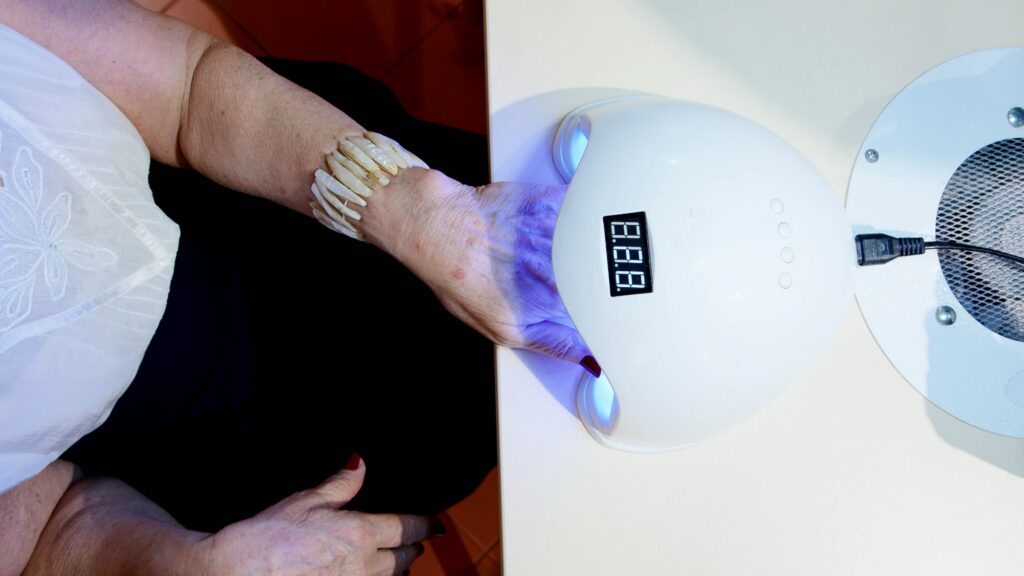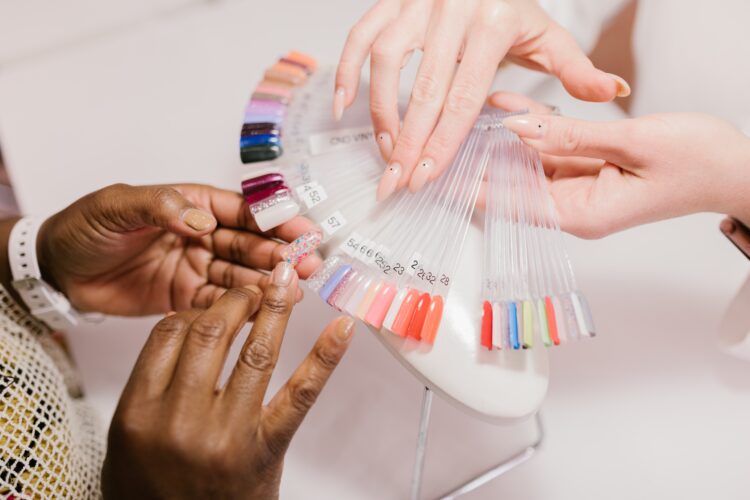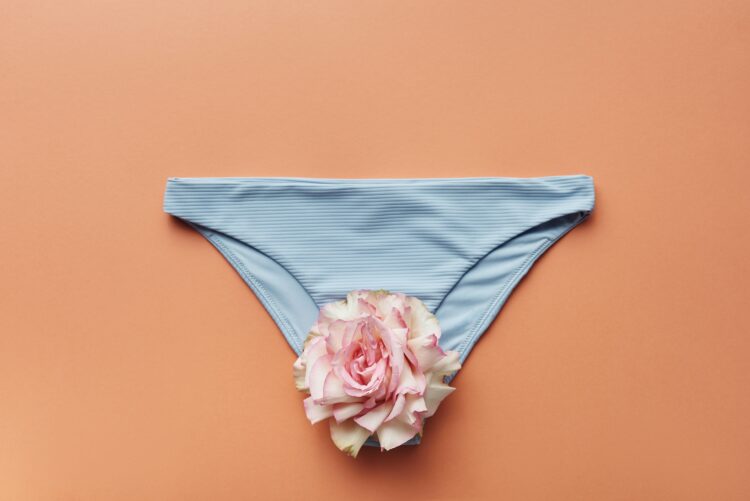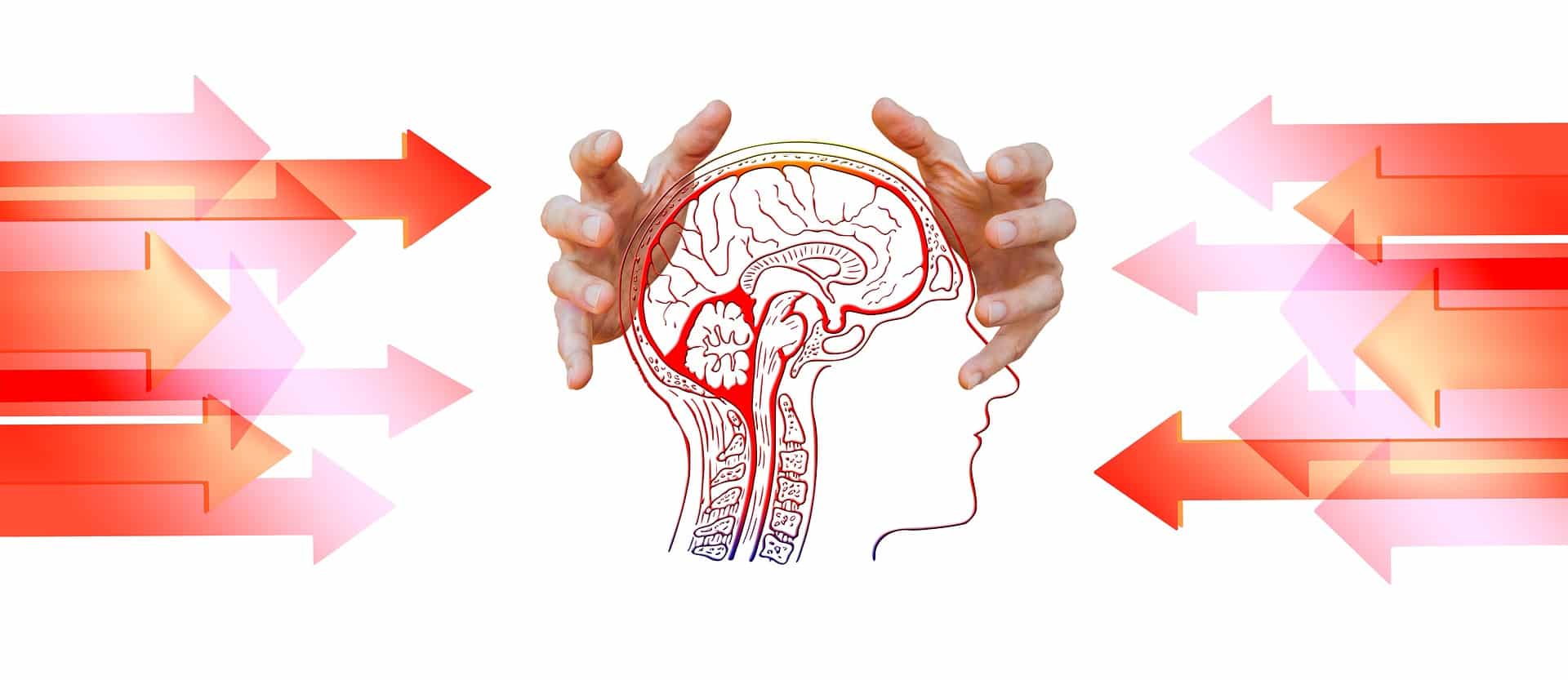Dermatologists have suspected that a favorite self-care and past-time activity poses health risks. Recently, research regarding these concerns has been circulating on social media platforms, demonstrating that nail dryers at the salon are damaging DNA and causing cell mutations. Going for a routine mani-pedi may sound harmless, but you may want to rethink how often you book appointments with your nail tech.
A study published in the Nature Communications journal titled “DNA damage and somatic mutations in mammalian cells after irradiation with a nail polish dryer” examined the repercussions that come with gel manicures and using UV nail dryers. It has long been a fact that UV light emitted from any source can cause cell damage, such as those found in tanning beds. Speculations about the damage the UV-emitting device is causing were proven to be true. UVA is the most common type of UV light found in nail dryers and is known to penetrate the skin more deeply. The research entailed the exposure of cells derived from humans and mice to UV nail dryers. After a 20-minute observation, 20-30% of cells have died. Another three consecutive 20-minute sessions were conducted, which caused 65-70% of cell death.
Although the results were conclusive of cell damage, limitations of the study must be considered. Dr. Julie Russak, a dermatologist based in New York, commented to CNN that observing UV exposure of cell lines is different from conducting it on living humans and animals. Senior author Ludmil Alexandrov also stated to the Washington Post that a large-scale epidemiological study would be needed to conclude and quantify any changes in cancer risk. Despite these limitations, UV emissions from salon dryers causing cell damage still stand. It is up to the masses to weigh the risks when deciding to partake in nail sessions involving these dryers.

There are also ways to protect yourself and mitigate the risks in the case that you do not want to give up gel manicures. The number one product used as a defense against UV rays is sunscreen. It is important to apply a broad-spectrum sunblock with an SPF of 30 or higher before attending any sessions. There are also UV-protective gloves with the fingertips cut off that can be worn to minimize the exposed area. Other options would be switching to traditional nail polish or using press-on nails, though the longevity of gel polish cannot be replicated with these alternatives.
If you regularly get your nails done at the salon, it is recommended to see a board-certified dermatologist to examine any skin damage or precursors for cancer. People who are also photosensitive due to having fairer skin, albinism, medications, and immunosuppressants must take extra precautions according to a CNN interview with dermatologists. It is important to look out for signs and symptoms, such as irregular spots or lines in the skin, especially for regular gel manicure customers. Early detection of skin cancer can lead to better response to treatment and increased survival.
Roselle Torres
If you found the article interesting, I also recommend this:





